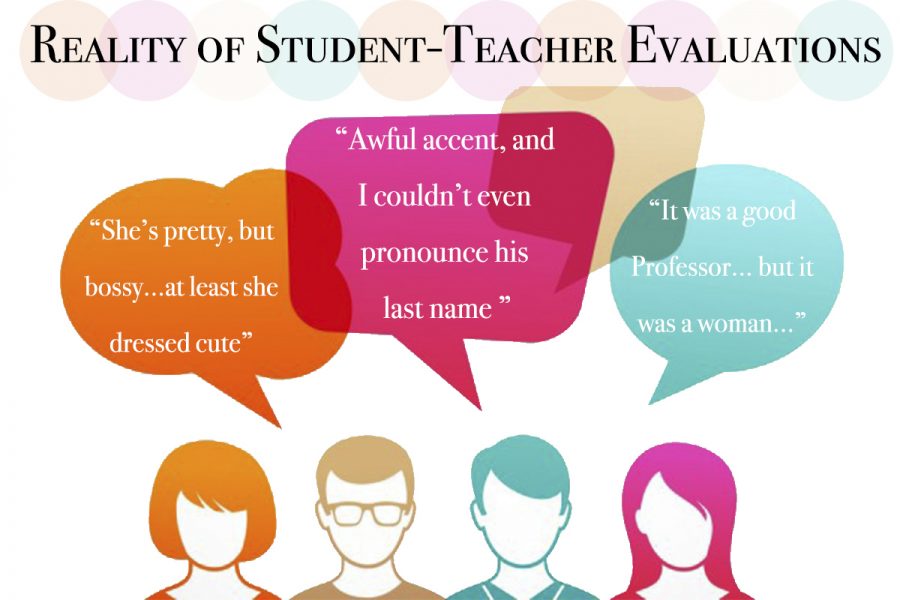Recent studies are finding that student evaluations of faculty performance are often biased against females and people of color.
The bias of such evaluations—which are conducted at City College using a survey format—was suggested during an Academic Senate Meeting April 11 while the group was discussing specifics of the evaluation process.
Raeanne Napoleon, sciences representative, was the one who brought up the studies about bias in student surveys. She was supported by social sciences representative Danielle Swiontek, who said she had read similar studies.
The studies include ones published in “PS: Political Science and Politics”, “Innovative Higher Education”, “ScienceOpen Research” and “Journal of the European Economic Association,” all of which conclude that women are routinely given lower scores than their male counterparts in cases where the instruction each provided was identical.
The comments on the evaluations women received often turned to their appearance and attitude, while the comments men received focused on their knowledge, experience, and competence as teachers.
Studies have also shown that students tend to be biased against teachers of color, especially when the teachers have accents.
In a follow-up interview, Swiontek described studies wherein students took an online course that was identical for all of them except for one aspect: the name of the teacher. Although the courses were all identical except for the teachers’ names, teachers whose names seemed to indicate that the teacher was female or a person of color were given significantly lower scores by the students.
“It’s problematic, then, if you’re going to use the evaluations as a measure or a decision for tenure,” Swiontek said. “At City College because of our evaluation process where we have someone sit and observe you, in addition to the student data, that can at least counteract some of that discrepancy.”
Napoleon described examples of bias she has seen or heard about in student surveys on campus in her follow-up interview.
“As a woman and as a citizen of this campus talking to other women, what I see and what others have seen is that our character is evaluated by students, and if we are not a certain level of what they perceive as nice it’s a shot against us,” Napoleon said.
Swiontek and Napoleon both have received comments about the way they dress. Napoleon has noted that a fellow teacher with curly hair consistently gets comments about her hair on evaluations.
Napoleon also said she has seen many negative comments about the accents of teachers in the chemistry department, which she chairs.
Administrative Policy 7151 defines the current process for evaluating faculty. The evaluation process includes a checklist from the department chair of job responsibilities, a comment form for the dean of the faculty members department to fill out and peer reviews in addition to student surveys and peer reviews. Student surveys for evaluating faculty are administered by each teacher in their classes and the Academic Senate gives input before they are given to the Superintendent-President.
Academic Senate President Priscilla Butler told The Channels that the student survey portion of faculty evaluations is not given any more or less weight than the direct observations made of the faculty member’s teaching.
Both Swiontek and Napoleon agreed there are measures that can be taken to prevent bias from negatively affecting a competent teacher. Among them, reminding students to be objective and focus on qualifications in comments and emphasizing peer reviews for determining tenure over student surveys.
“Racism and misogyny and all this stuff is like smog and we all breathe it in so it affects all of us,” Napoleon said.
Clarification: May 8, 2018
This story includes a clarification as to the purpose of the meeting in question.














